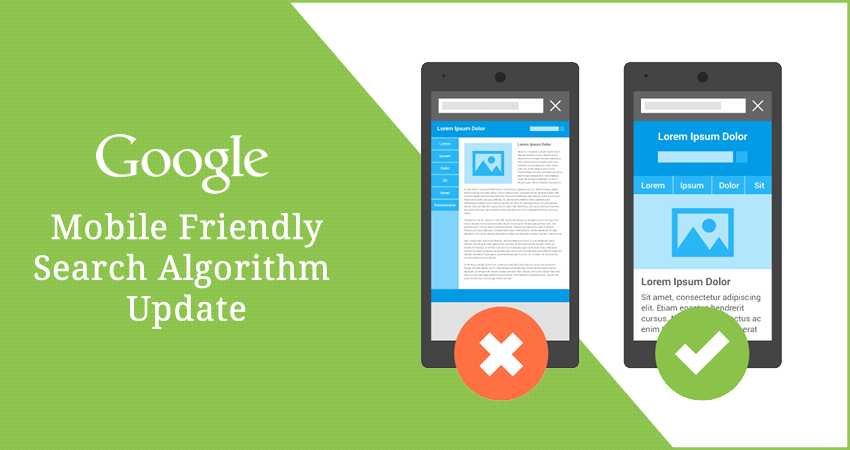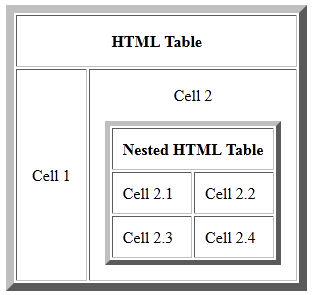A Content Management System (or CMS for short) is software you can install on your website to make it easy to manage web pages without deep knowledge of HTML. This is great for marketing teams and business owners who simply want to change web page copy, add pages and use their website as an effective communication tool. In the past few years, simply having a CMS was enough. Since a bigger portion of visitors are coming from mobile devices, upwards of 60% of all Internet searches, there is more urgency to transition to a mobile-first responsive website design.
Does your website look terrible on an iPad or iPhone? Does the site load slowly on a mobile device when you’re not on a high speed WiFi connection? Consider upgrading your current website to a new content management software package using responsive website design. If your site isn’t mobile-friendly or the speed is poor on mobile, it’s time to make a switch!
On April 21, 2015, Google released a significant new mobile-friendly ranking algorithm that’s designed to give a boost to mobile-friendly pages in Google’s mobile search results.
And in May 2016, Google “increased the effect of the [mobile-friendly] ranking signal”

5 Reasons For A Responsive Website Design
Below are some reasons to consider making a switch from your current website.
1. Your Site Uses HTML Tables
Table based layout was very common in the late 90s when the internet was young. Most current CMS software will render a website using web standard mobile-friendly HTML5 and CSS based layout if the web designer who created the site did so as well. Search engines also prefer the clean source code that CSS layouts produce so this will help your website perform better for SEO.

Search engines also prefer mobile friendly websites built using responsive design. An easy way to tell if your code is outdated, right click on your desktop browser and select view source. Look for “table” and see if you can find one. If there are any tables used, your website is very outdated.
2. Your CMS is Hard to Use
Just because your website runs on content management software doesn’t mean your marketing team is happy using it. Does it take several days, weeks, or even months to bring new team members up to speed on your CMS admin? Do features on your CMS work as expected? Is it easy to add features and is the software compatible with popular marketing tools? These are just some of the things you should consider when evaluating a CMS software package. Cost and features are important, but don’t forget you have a marketing team that will be using the new software every day. Hidden costs like employee turnover and training could be a result of selecting the wrong software.
3. Your Developer is Too Busy
It’s likely your in house web developer is busy servicing clients or working on higher priority business projects. That means your team is forced to wait months for site updates or look outside the company for help. Wouldn’t it be great if your content management software had simple plug-ins or modules that could be added with very little custom development? This would free up time your programmer can spend on client projects or improving core services. Having a flexible system that can adapt to your marketing needs is very important. Having a rigid framework creates a competitive disadvantage that can set your business back in revenue and search engine rankings. SEO performance is sometimes about how quickly you can adapt to changes. If you can’t change quickly, Google will sometimes drop your site for failure to make improvements (examples: mobile-friendly, site speed, etc.).
4. Your Current Website CMS Software Was “Custom”
This is not to say that every custom developed CMS software package is flawed. Some custom developed packages do just fine for the companies that sell them and the companies that use them. What happens to the CMS software when the company that developed it closes it’s doors or fails to return your support calls? Many clients will be left to fend for themselves with little or no documentation. There are many benefits to a popular open source CMS or well known brand backing the software. Plenty of documentation, certified consultants ready to take your call, frequent upgrades, etc.
5. You’ve Out Grown Your Website
So your company has grown, continues to add new products and can’t keep up with the number of customer service calls. Your current website is 10 pages about how your company got started and the company dog. That’s a good story but your growing list of customers have problems they need your help solving. A website that can grow and expand quickly as your company grows will help you service customers more effectively. Use a CMS to add and keep current things like FAQs, request a quote, etc. These tools help your customer service team save time and help qualify new customers.
6. Your Website is Mobile Unfriendly (Bonus)
A mobile friendly “responsive” website, once a nice to have, is becoming necessary for business. Roughly 60%+ of shoppers used a mobile device to visit a retailers online store and 4 out of 5 customers use smartphones to shop. This means your business must be ready to address the flood of mobile visitors. Check your Google Analytics reports to see what percentage of visitors are mobile. Many websites currently have 15-20% of their visitors coming from mobile devices like iPad, iPhone, Android and more. A responsive CMS website, a system that adjusts to the device used, should be a high priority.
Responsive Design Resources
Looking for more help getting your website mobile friendly and performing well in mobile search? Take a look at some of these easy to read tutorials and resources that will help you decide what to do next.
- Responsive Web Design Basics
- AMP Project
- AMP Examples
- Custom Responsive Web Design with Bootstrap
Free Consultation
There are many free and paid responsive CMS packages that will get the job done. Which one is right for your business is key. Interested in upgrading your website? Contact us today for a free consultation.
